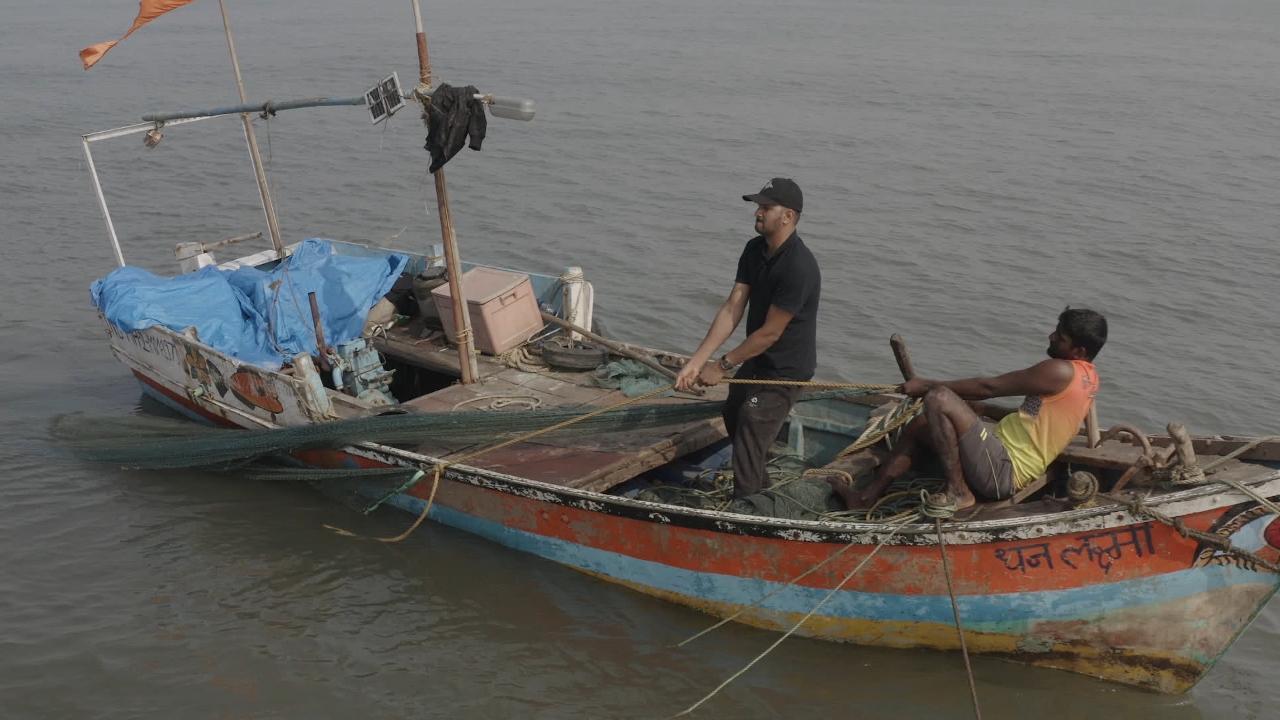Home / Entertainment / Bollywood News / Article /
'Against The Tide' movie review: An incisive personal drama
Updated On: 13 October, 2023 07:47 PM IST | Mumbai | Johnson Thomas
Sarvnik Kaur’s second feature length documentary is about the threats faced by the Koli (fisher folk) community and uses documentary footage and naturalistic fiction to depict the real-life experiences

Against the Tide movie review
Film: Against The Tide
Cast: Rakesh, Ganesh and their families
Director: Sarvnik Kaur
Rating: 3 1/2
Runtime: 97 min.
Sarvnik Kaur’s second feature length documentary is about the threats faced by the Koli (fisher folk) community and uses documentary footage and naturalistic fiction to depict the real life experiences of two friends who get torn by their opposing concerns for their community and industry.
Rakesh and Ganesh, both Indigenous fishermen and best buddies, are driven to desperation by climate change, affecting the very livelihood they are dependent on. While one wants to embrace the progress visible in fishing with LEDs in the deep, as done by advanced Chinese fishing boats, the other is content in his traditional ‘secure zone’ of fishing in shallow waters nearer to the shore. As their fishing catch gets dearer and their individual economics, more fragile, the two best friends get caught up in conflicts and complications arising out of their diverging circumstances. Their friendship begins to fracture as their families struggle to get a firmer handle on life.



